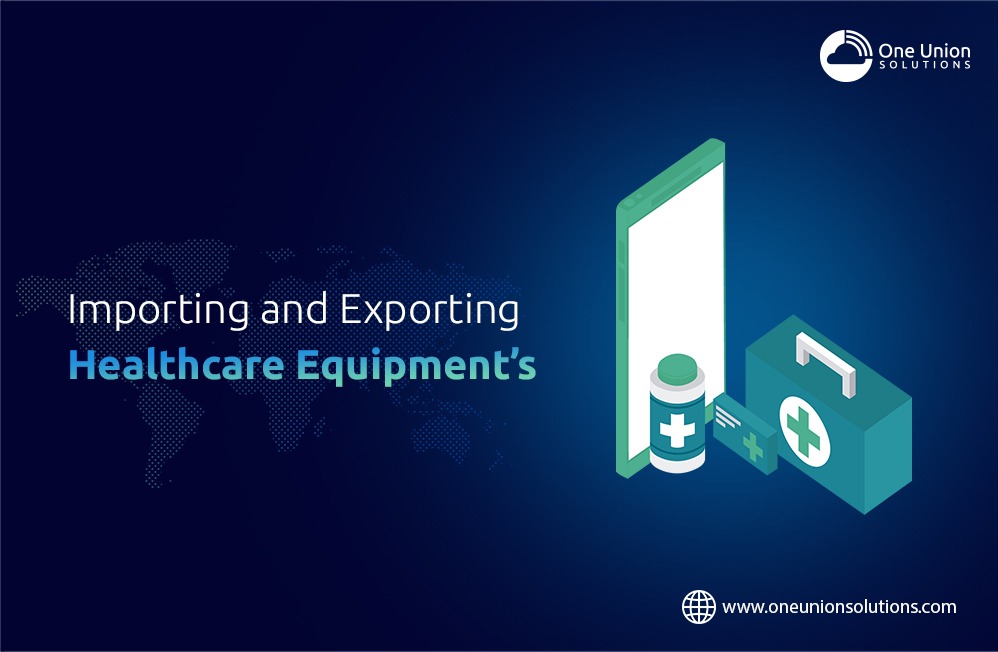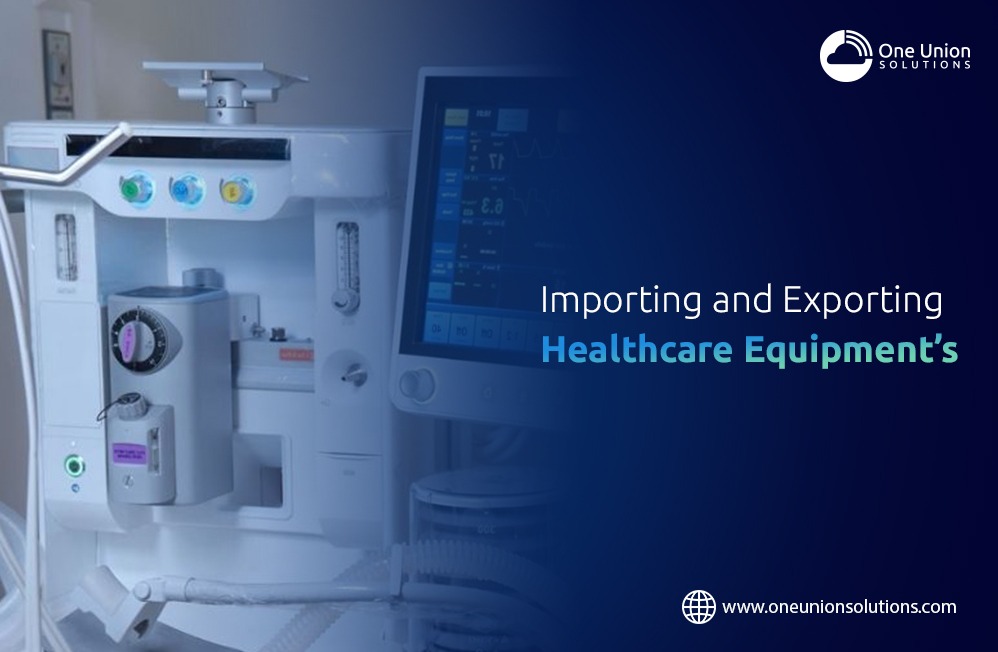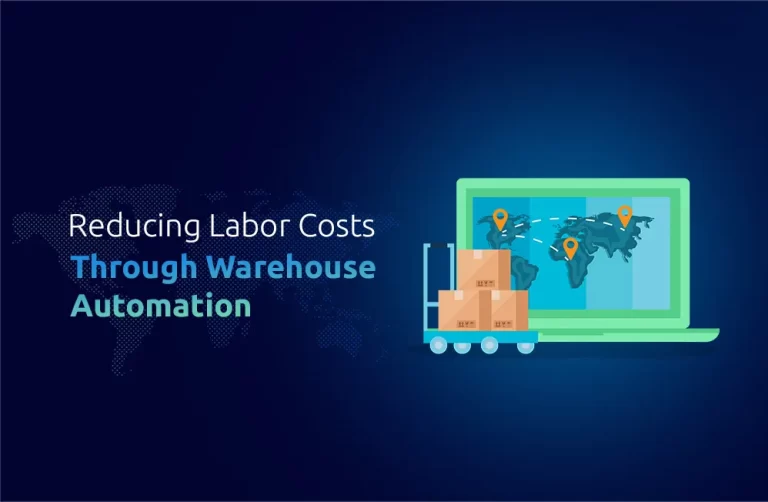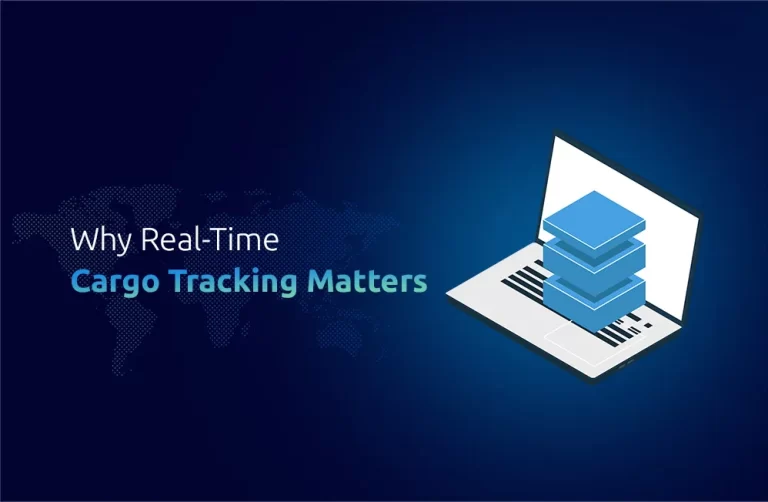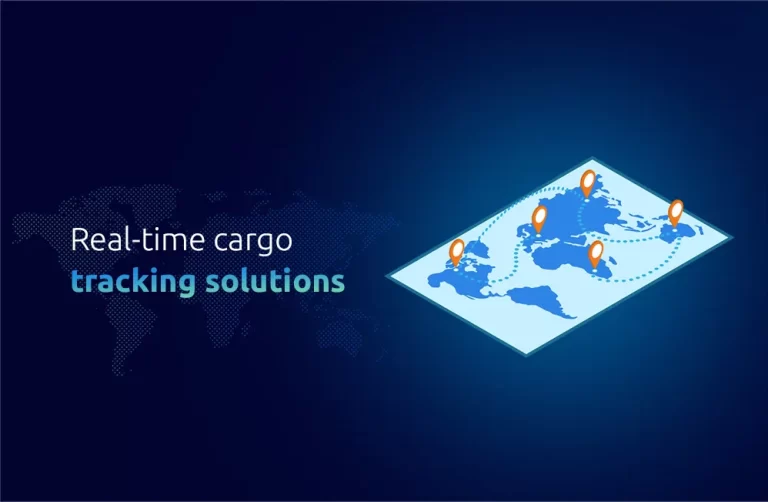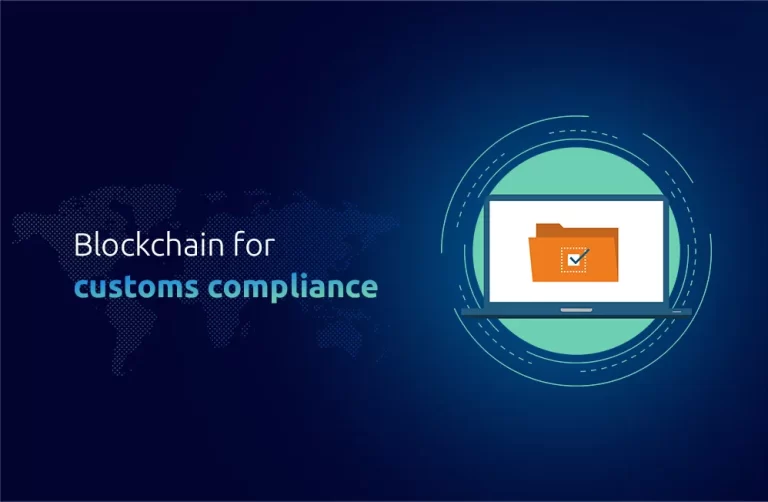Importing and exporting healthcare products involve navigating a maze of compliance and regulations to meet healthcare providers’ safety and efficiency requirements. Here, We are about to discuss the most important aspects of this process, like GSP (Generalized System of Preferences), as well as the responsibilities of importers and accurate ways to comply.
According to data analyzed by AiMeD from the commerce ministry’s statistics, medical device imports increased by an unprecedented 41% in 2021-22 – surpassing their total import value from 2020-21 of Rs 44708 crores or $5.59 billion to Rs 63200 crores or US$ 7.91 billion. During this time, China, the US, Germany, Singapore, and the Netherlands comprised 68% of India’s medical device imports.
Understanding of the Regulatory Landscape
Compliance is paramount when dealing with healthcare equipment import/export trade. The Generalized System of Preferences (GSP) offers tariff reductions to eligible countries, offering importers cost-reduction opportunities. Importers should remain up-to-date on specific regulations applicable in their own country and those they trade.
Importers/exporters (IORs/Exporters) are responsible for meeting all import compliance requirements. This may involve procuring permits, complying with safety standards, and meeting local regulations for their equipment.
Here’s some more insight:
Key Differences of Importer vs Exporter :
Importers and exporters play a critical part in the supply chain processes. However, their roles differ greatly. Importers must abide by local laws when importing machinery into the country. In contrast, exporters need to warrant that the equipment complies with requirements in the country of its destination. In the case of hyperconverged infrastructures, exporters must help provide evidence of conformity with the country’s import specifications. Understanding this distinction is essential to ensure regulatory compliance at every phase.
When it comes to clarifying the practices import/export medical supplies and their relationship to the ever-important customs regulations healthcare shipments, then it becomes obvious that learners need to be able to understand the roles and responsibilities of importers as well as exporters. Another employment opportunity is the exporter of record medical who makes sure that the documents, the certifications of the products and the regulations of the destination country have been met before the products are exported to the country of destination. This role becomes most critical in the healthcare system because delay or non-conductance of duty means affecting care to the patients. It will reduce the probability of penalties or rejected shipments as well as help clear the customized formality faster and more effectively since most of the exporters of record maintain a record of full compliance with existing regulatory requirements.
An Overview of Customs Broker Services Providers
The complex rules surrounding export and import require help from the customs broker. A custom broker serves as an intermediary between the importers & the government, guaranteeing that all paperwork required is filed in time & all taxes and also duties are paid promptly.
A customs broker can help speed up waybill tracking and ensure that the equipment is delivered on time, particularly in the healthcare field where the speed of accessibility to equipment directly affects the patient’s care.
Importer of Record Responsibilities
Importers of record (IORs) have numerous responsibilities beyond simply assuring compliance, such as overseeing logistics of transporting equipment – this may involve freight forwarding services and selecting suitable shipping methods.
Importing medical devices requires carefully calculating sea freight chargeable weight to minimize shipping costs while complying with international shipping regulations. Furthermore, knowing air freight chargeable weight helps speed up time-sensitive deliveries.
Transport regulations and Custom Clearance requirements
Once the equipment is in transit, understanding what “inbound out of customs” means is critical for effective inventory management and timely access for healthcare providers. This term refers to when customs has cleared shipments ready for delivery – knowing when equipment will become available helps manage inventory effectively while assuring timely access for healthcare professionals.
Customs clearance requires an organized approach, which means tracking the international shipment release process and understanding the requirements for successful customs clearance.
Compliance in Healthcare Equipment
Compliance in healthcare is especially critical, given its direct effect on patient safety; all equipment must be safe and effective. By adhering to regulations, companies ensure they offer top-quality equipment – building trust among healthcare providers and their patients alike.
Material handling equipment adherence standards should always be met to protect patients while shielding the organization against legal implications arising from noncompliance issues.
Why choose One Union Solutions?
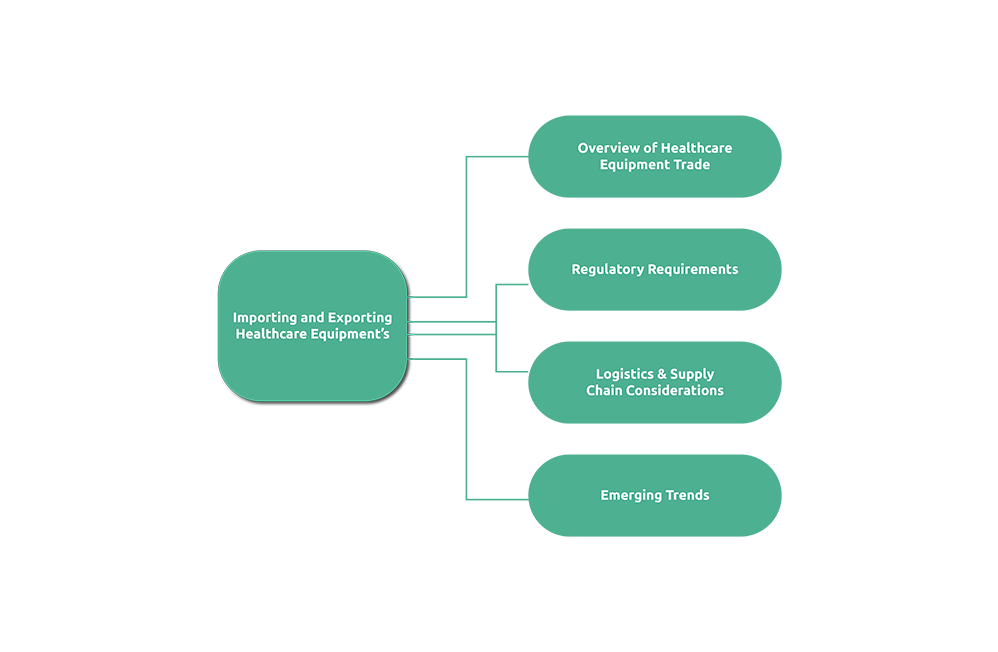
One Union Solutions offers comprehensive services spanning customs brokerage to logistics management, ensuring that your equipment satisfies all regulatory requirements. Their knowledgeable staff understands the responsibilities of importers and exporters, proving an invaluable partner in your healthcare supply chain.
Navigating the import and export of healthcare equipment is a challenging feat. Still, organizations can ensure they meet all requirements by understanding regulatory compliance and the roles of importers and exporters, as well as working with experienced partners like One Union Solutions to streamline this process. Doing so enhances patient safety while improving the safety and quality standards of healthcare equipment used during patient care.
FAQ’s
1. What is an Importer of Record (IOR’s) role?
IOR ensures compliance with local regulations when importing healthcare equipment. This involves securing required licenses and ensuring the product meets safety and quality standards.
2. How does the GSP influence import costs?
The GSP provides tariff reductions to suitable countries, making importation more cost-effective for importers of healthcare equipment to that nation.
3. What are the differences between the importer and the exporter of record?
Importers import equipment into a country while abiding by its laws; exporters ship equipment according to regulations in their destination country.
4. Why are customs brokerage services integral to the import/export?
The customs brokers liaise between importers and government authorities, helping importers ensure all paperwork conforms with regulations while streamlining the import/export process.
5. What are the roles and responsibilities of value-added resalers part in this regard?
value-added resalers add features or services to equipment before selling it for resale, ensuring their modifications meet relevant regulations and safety and effectiveness standards. When adding features or services, they must ensure compliance with laws and meet the equipment’s safety and effectiveness requirements—incorporating 4o mini PCs.

